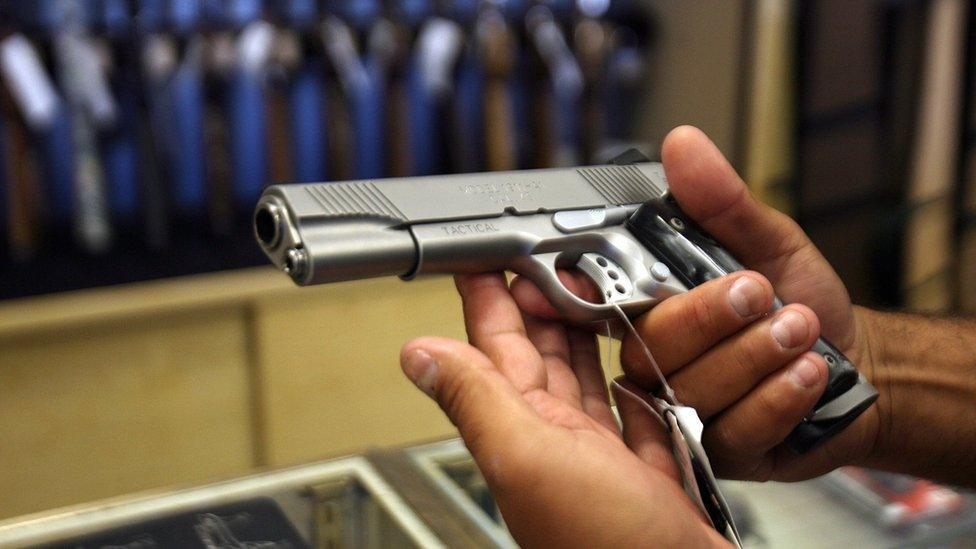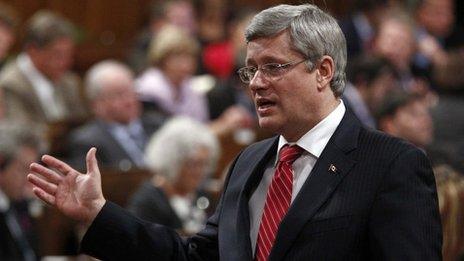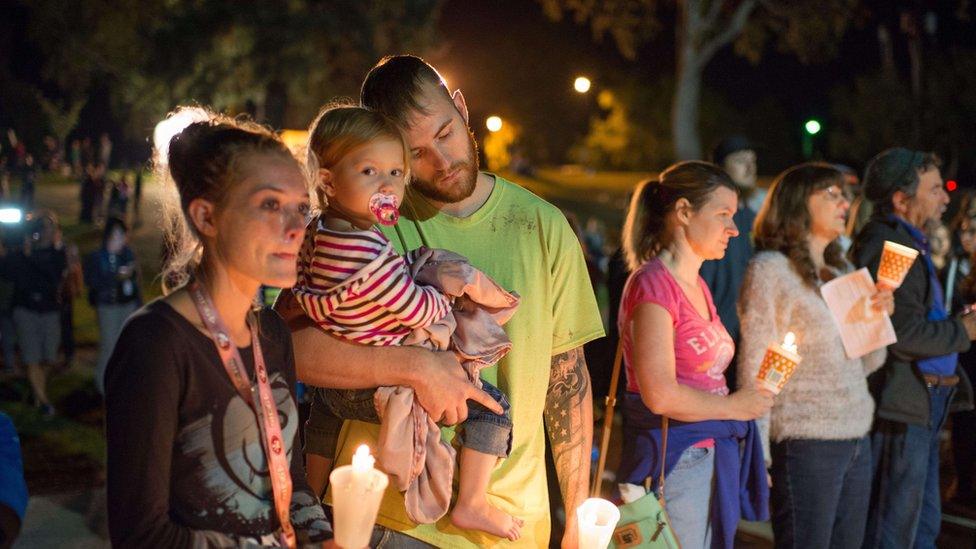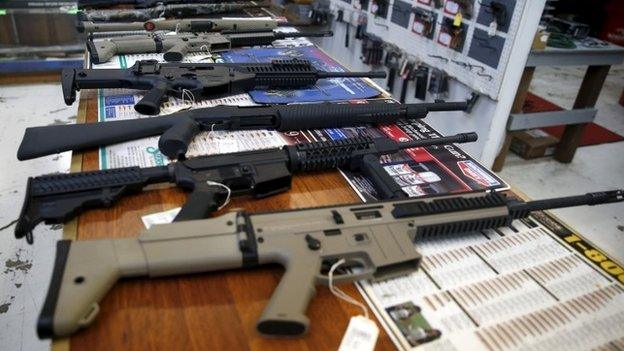Canada introduces tighter gun control measures
- Published

There are an estimated 300 million guns in the US
Canada's federal Liberals have unveiled long-awaited gun control measures.
They include tougher background checks, including screening people with a history of violence.
Proposed measures also include making retailers keep records of gun inventories and sales and giving police access to the records when warranted.
Crime rates in Canada have been on a long decline but gun-related homicides and gun violence have increased.
The party campaigned in 2015 on a promise to make it harder to procure and use handguns and assault weapons.
Gun violence in Canada is much lower than in the United States, but higher than in Europe and other many Western countries.
Firearm offences have also been on the rise in Canada in recent years.
In 2016, here were 2,465 criminal violations involving firearms, an increase of 30% since 2013, according to figures released by the federal government.
The government has been criticised for using 2013, external, a low crime year, as a baseline.
Toronto, Canada's largest city, has seen a steady increase in gun violence, external, with 392 shootings in 2017.
Of all the murders in the US in 2012, 60% were by firearm compared with 31% in Canada.
However, 18.2% of the murders in Australia were committed with guns and 10% in the UK.

Canada's Public Safety Minister Ralph Goodale tabled the legislation
Gun control has often sparked divisive debates in Canada, which has a large rural population where guns are widely owned and used.
The tighter measures could cost the Liberals support in rural ridings in the coming 2019 federal election.
Federal Public Safety Minister Ralph Goodale said on Tuesday the government is protecting the rights of legal gun owners and called the legislation "a sensible, practical package".
Proposed measures include:
Ensuring buyers show valid licenses when transferring firearm ownership
Enhanced background checks for licenses will look at a person's entire life history, including a criminal record search and screening for mental illness associated with violence
Requiring authorisation for transporting legally owned restricted and prohibited firearms like handguns and assault weapons
Rod Giltaca, with the Canadian Coalition for Firearm Rights advocacy group, said he has some initial concerns with the newly tabled legislation.
He is concerned by the provision that hands full authority of gun classifications - as non-restricted, restricted, or prohibited - over to the Royal Canadian Mounted Police (RCMP).
Owners of restricted and prohibited firearms require additional safety training. The guns must also be registered and their use is limited to certain activities, like target practice.
The previous Conservative government ensured Cabinet had the ability to overrule the RCMP after the force made some controversial classification decisions.
Mr Giltaca said verifying someone has a valid license when a firearm is transferred between owners "is reasonable".
Gun control advocates raised concerns the new bill does not go far enough in addressing all aspects of gun violence in Canada.
- Published25 October 2011

- Published2 October 2015

- Published5 January 2016
